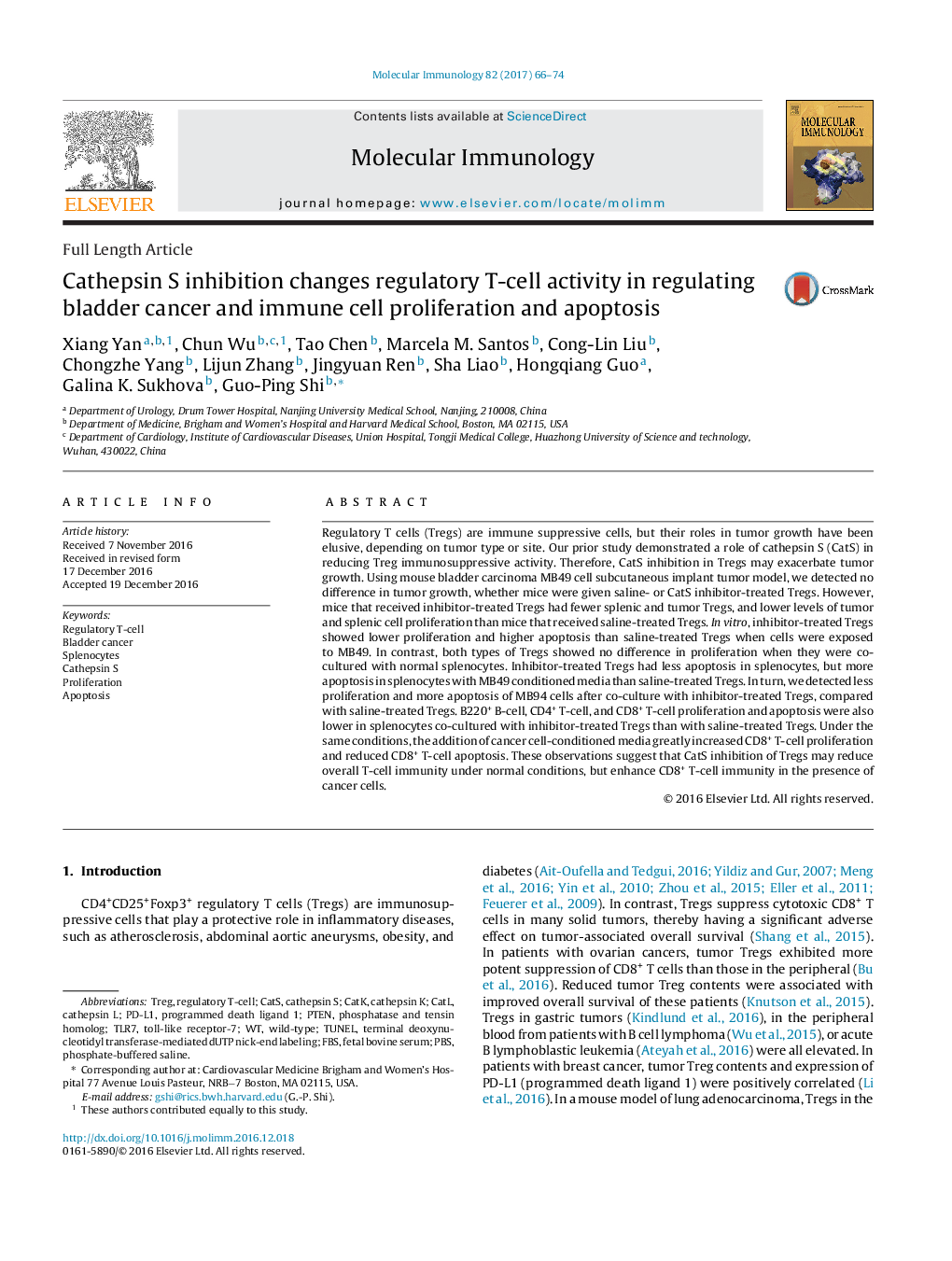| Article ID | Journal | Published Year | Pages | File Type |
|---|---|---|---|---|
| 5592180 | Molecular Immunology | 2017 | 9 Pages |
Abstract
Regulatory T cells (Tregs) are immune suppressive cells, but their roles in tumor growth have been elusive, depending on tumor type or site. Our prior study demonstrated a role of cathepsin S (CatS) in reducing Treg immunosuppressive activity. Therefore, CatS inhibition in Tregs may exacerbate tumor growth. Using mouse bladder carcinoma MB49 cell subcutaneous implant tumor model, we detected no difference in tumor growth, whether mice were given saline- or CatS inhibitor-treated Tregs. However, mice that received inhibitor-treated Tregs had fewer splenic and tumor Tregs, and lower levels of tumor and splenic cell proliferation than mice that received saline-treated Tregs. In vitro, inhibitor-treated Tregs showed lower proliferation and higher apoptosis than saline-treated Tregs when cells were exposed to MB49. In contrast, both types of Tregs showed no difference in proliferation when they were co-cultured with normal splenocytes. Inhibitor-treated Tregs had less apoptosis in splenocytes, but more apoptosis in splenocytes with MB49 conditioned media than saline-treated Tregs. In turn, we detected less proliferation and more apoptosis of MB94 cells after co-culture with inhibitor-treated Tregs, compared with saline-treated Tregs. B220+ B-cell, CD4+ T-cell, and CD8+ T-cell proliferation and apoptosis were also lower in splenocytes co-cultured with inhibitor-treated Tregs than with saline-treated Tregs. Under the same conditions, the addition of cancer cell-conditioned media greatly increased CD8+ T-cell proliferation and reduced CD8+ T-cell apoptosis. These observations suggest that CatS inhibition of Tregs may reduce overall T-cell immunity under normal conditions, but enhance CD8+ T-cell immunity in the presence of cancer cells.
Keywords
PBSFBSCatKCatLPD-L1TLR7TregSplenocytesProliferationTUNELApoptosisBladder cancerfetal bovine serumRegulatory T-cellphosphatase and tensin homologProgrammed death ligand 1terminal deoxynucleotidyl transferase-mediated dUTP nick-end labelingPhosphate-buffered salinewild-typePtenCathepsin LCathepsin SCathepsin KCats
Related Topics
Life Sciences
Biochemistry, Genetics and Molecular Biology
Molecular Biology
Authors
Xiang Yan, Chun Wu, Tao Chen, Marcela M. Santos, Cong-Lin Liu, Chongzhe Yang, Lijun Zhang, Jingyuan Ren, Sha Liao, Hongqiang Guo, Galina K. Sukhova, Guo-Ping Shi,
